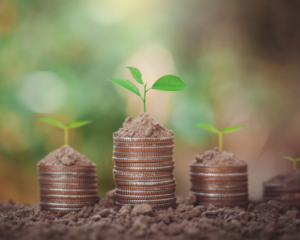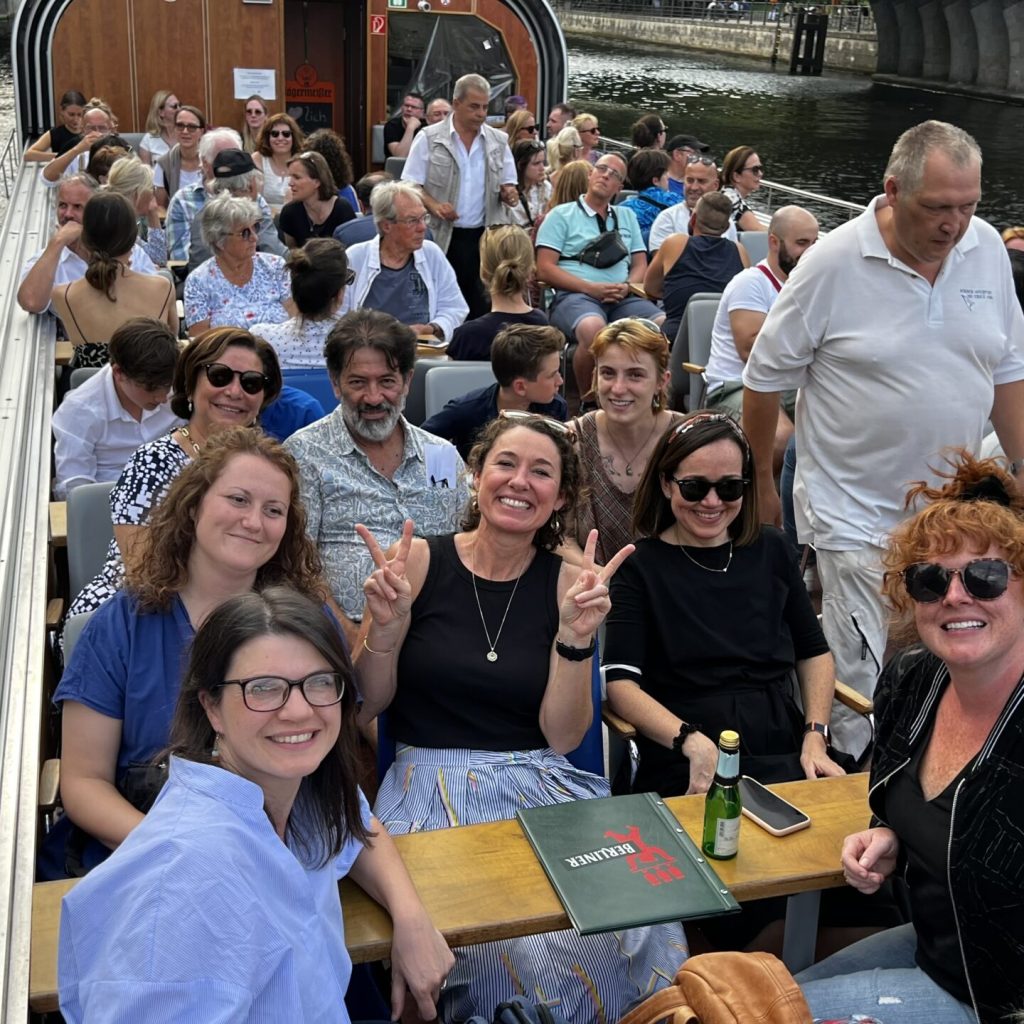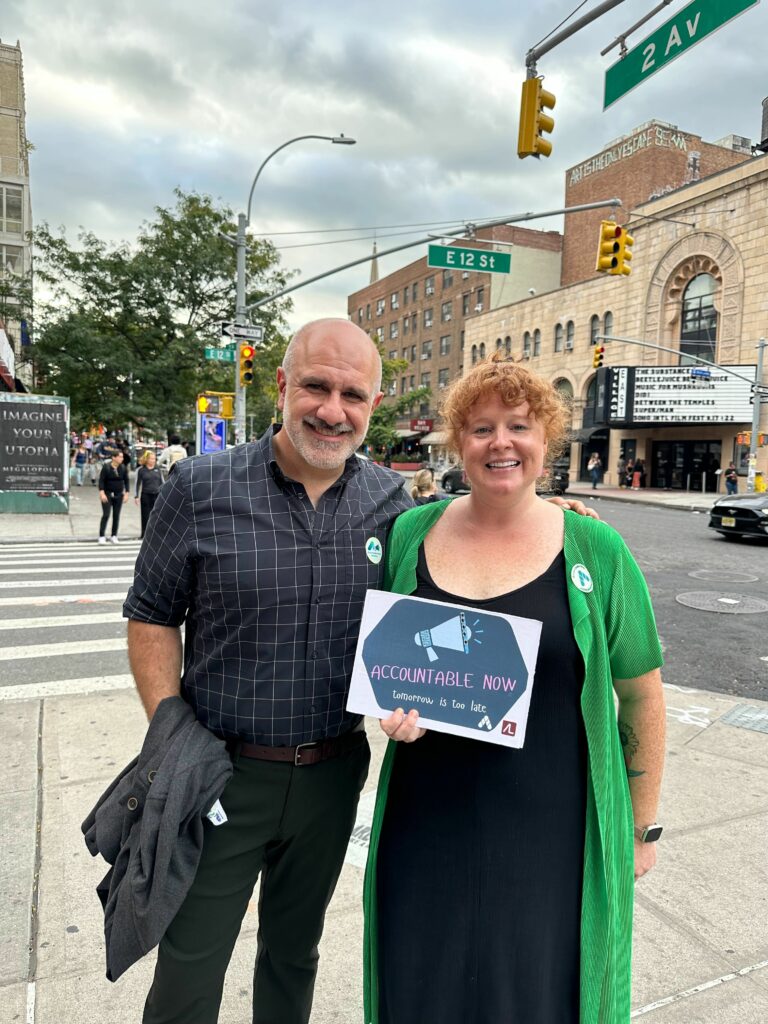
The views, insights and opinions expressed below are of the author(s) and are not Accountable Now’s. We are proud to amplify a range of diverse voices that help shape, challenge and push our work as well as the sector as a whole to “do good better.”
When I joined the board of Accountable Now in 2018, first as an appointed member on behalf of CIVICUS, and then after leaving my post at the organisation in 2019, as an elected independent board member until 2025, the international NGO sector was being rocked by safeguarding scandals, eroding public trust and forcing long-overdue reckonings across our institutions. Within our Membership, and on the Board, the conversations quickly became less about compliance and more about values—about power, responsibility, and the legitimacy of civil society itself.
Over the next seven years, we found ourselves in near-constant adaptation. From the fallout of those scandals to a global pandemic, through leadership transitions, and finally and consistently, resourcing challenges that required us to consolidate into the Accountability Lab network in 2024, Accountable Now became something of a microcosm for the larger INGO sector—aspirational, under pressure, and seeking relevance in a rapidly changing world.
Serving on this Board wasn’t always easy. We were often responding to events beyond our control, with limited resources and imperfect information. But what stands out to me is how committed we remained to accountability—not just in name, but in practice.
We asked hard questions: Who gets to define accountability? Who are we really accountable to—donors, communities, staff, each other? And how do we avoid becoming performative in a sector where narratives of “impact” and “sustainability” can sometimes mask deeper imbalances of power?
My transition from a Member-representative to an independent seat, forced me to reckon with my own shortcomings in bridging the deliberations at Accountable Now and the ever-evolving internal accountability work across an expansive Member Organisation.
We didn’t always have the answers, but we stayed in the conversation. That, in itself, is a form of accountability—and a hard one to maintain under pressure.

Members of the AN Board enjoying a boat ride during an in-person meeting in Berlin!
COVID, like for so many of us, forced a re-examination of purpose. Suddenly, the entire operating environment for civil society shifted. Our partners on the ground were under strain. Member Organisations had to pivot rapidly. The cracks in traditional models of development and humanitarian aid became even more visible.
For Accountable Now, it became clear that we had to evolve, too. The funding slump that followed wasn’t just a financial challenge; it was a moment of truth. Did we still believe in our purpose? And if so, were we willing to do what it took to keep the spirit of the work alive, even if the structure had to change?
The decision to join the Accountability Lab network was not made lightly. But it was made in the spirit of adaptation, humility, and alignment—staying true to the mission, even if the form shifted.
What I’ve come to believe through this experience is that accountability isn’t a checklist or a reporting framework. It’s a living, relational practice. It’s what we at Accountable Now call Dynamic Accountability. It’s how we show up for each other when things go wrong. It’s how we own our mistakes. It’s how we centre the people most impacted by our decisions. And it’s how we stay open to being challenged, changed, and—yes—held accountable.
As the global civil society sector continues to grapple with questions of legitimacy, equity, and decolonisation, I hope that Accountable Now’s legacy endures—not as a set of tools or standards, but as a space where organisations, practitioners, and big dreamers came together to ask: how can we be better? It’s where doing good better is possible.
A key part of being better, I learned from masterful colleagues at Accountable Now, is how we show up and sit in moments of discomfort when our own privilege and power is at stake, and as we are held accountable. Former Executive Director Roccio Moreno Lopez led our network through the thick of the COVID years, quietly, gently, yet authoritatively taking on a crisis for which no one had a roadmap. Then came the current Executive Director, Megan Colnar—a powerhouse networker and front-line innovator (which requires one to be a willing fighter for what’s right), and under her leadership Accountable Now has adopted experimentation as a regular practice. Accountable Now’s Board Chair Rachel Smith has been what I wish for every board in our sector—an engaged and responsive chair who lives the values of servant leadership.

Alex (left) with Executive Director Megan Colnar at Accountable Now’s Happy Hour Meet-Up during UNGA 2024.
To my fellow Board Members, executive directors, and the incredible staff we’ve worked with over the years—thank you. Your integrity, your persistence, and your willingness to stay in the hard moments made this work matter.
And to the broader civil society community: the work of accountability is never done, and never easy. But it remains, I believe, the most hopeful work we can do—because it asks us to imagine and embody the kind of world we say we want to build—and certainly in today’s world, hope lies precisely in what is not visible right now.